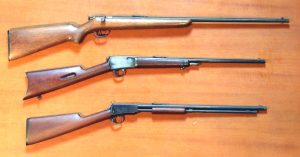 Most living creatures will defend themselves when attacked, and humans are no different.
Most living creatures will defend themselves when attacked, and humans are no different.
Preserving one’s life is a natural instinct, and for humans, a natural right. No law can take away our right to save our own lives, even if it means depriving the attacker of his.
In the United States, the Second Amendment to the U.S. Constitution gives us the right to defend ourselves from government tyranny and the destructive impulses of individuals with firearms.
Black Americans on both sides of the aisle should be first in line to protect the Second Amendment right to keep and bear arms. Some have forgotten or perhaps never learned why the government tried to keep black Americans disarmed.
A so-called conservative columnist for the New York Times, Bret Stephens, wrote that he never understood the “conservative fetish for the Second Amendment.” Would he say the same about free speech and free press advocates? Is it a fetish to support due process of law or the Fifth Amendment right not to incriminate ourselves?
Reason’s Damon Root wrote about the columnist’s comment.
As part of his case, Stephens explicitly rejects the “personal liberty” argument for gun rights. “The idea that an armed citizenry is the ultimate check on the ambitions and encroachments of government power is curious,” he writes. “The Whiskey Rebellion of the 1790s, the New York draft riots of 1863, the coal miners’ rebellion of 1921, the Brink’s robbery of 1981—does any serious conservative think of these as great moments in Second Amendment activism?”
Perhaps Stephens should widen his gaze to include the struggle for civil rights and racial justice in the Jim Crow South, in which the Second Amendment played a noble role on the side of personal liberty.
Root quoted a man who was involved in the 1960s civil rights movement.
“I’m alive today because of the Second Amendment and the natural right to keep and bear arms,” John R. Salter Jr. said. “Like a martyred friend of mine, NAACP staffer Medgar W. Evers, I, too, was on many Klan death lists and I, too, traveled armed: a .38 special Smith and Wesson revolver and a 44/40 Winchester carbine. The knowledge that I had these weapons and was willing to use them kept enemies at bay.” (emphasis added)
In cases where blacks knew the government wouldn’t thoroughly investigate crimes against them, these Americans had to make sure they’d be safe — with guns.
The examples of John Salter and T.R.M. Howard are not unusual. Martin Luther King Jr. applied for a conceal-carry permit (denied by the government) and declared, “the principle of self-defense, even involving weapons and bloodshed, has never been condemned, even by Gandhi.” According to civil rights hero Fannie Lou Hammer, “I keep a shotgun in every corner of my bedroom.” Rosa Parks once described her dinner table “covered with guns” while activists met in her home to plot strategy.
And, of course, the idea of the Second Amendment guarding personal liberty against racist government encroachment goes back even further than the era of Jim Crow. As the abolitionist leader Frederick Douglass liked to say, “the true remedy for the Fugitive Slave Bill” is a “good revolver.”
Instapundit’s Glenn Reynolds interviewed Nicholas Johnson, author of Negroes and the Gun: The Black Tradition of Arms, about the history of blacks owning guns. The non-violent emphasis of the civil rights movement, Johnson noted, overshadowed the tradition of blacks defending themselves with guns.
Photo credit: By Hmaag – Own work, CC BY-SA 3.0, Link
 Black Community News News and Commentary for Christians
Black Community News News and Commentary for Christians
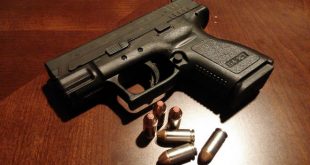
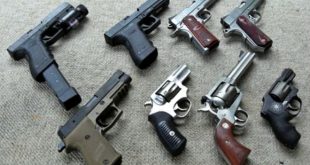
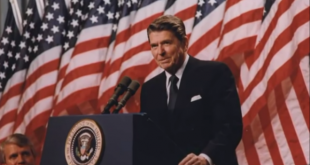
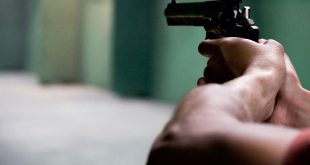
John Brown had this in mind in 1859.